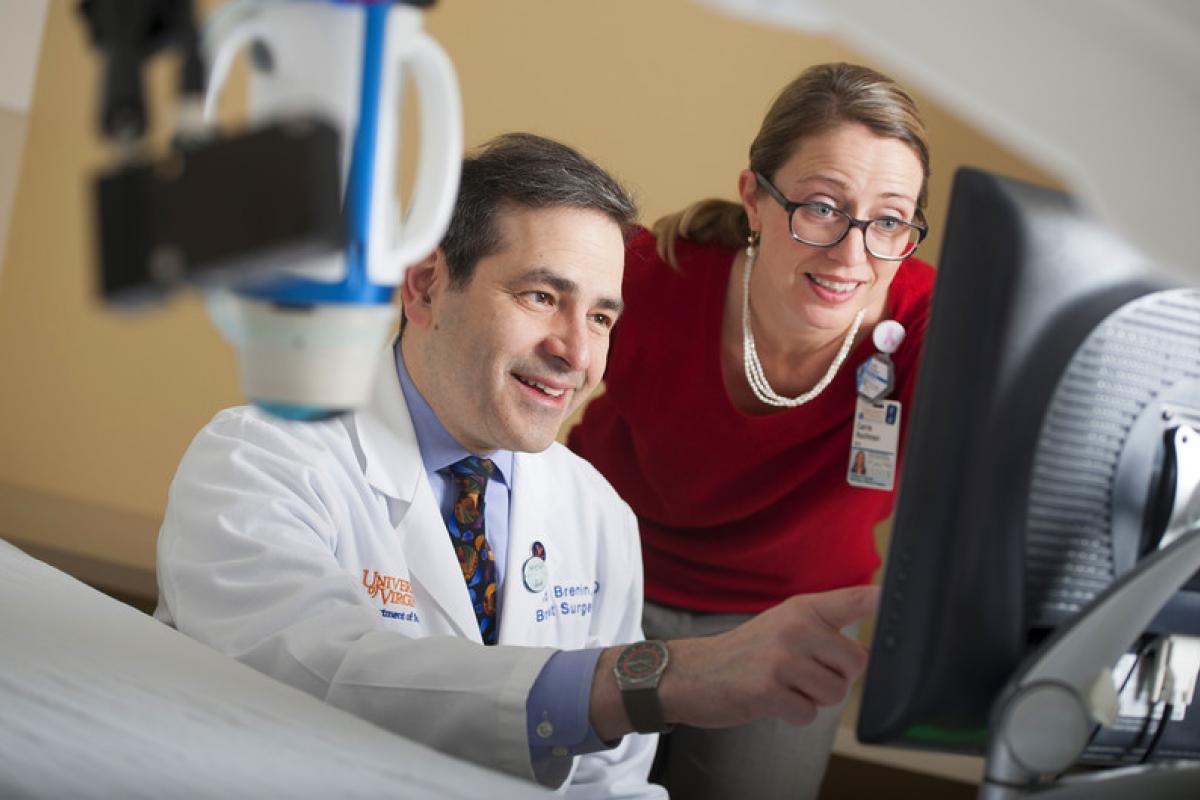In the Footsteps of M.C. Wilhelm, MD
With the passing of Morton C. "MC" Whilhelm, MD (Med ’47), UVA Cancer Center lost one of its greatest champions. As the first director and founder of UVA’s Breast Clinic and Breast Resource Center, Wilhelm pioneered a team-based approach to care, bringing together specialists across disciplines to collaborate on the best treatment for each patient. His novel approach also promoted patient education and supported efforts aimed at helping women understand their diagnoses and cope with the effects of their disease.
Wilhelm was also a dedicated history scholar and writer. As Joseph Helms Farrow Professor Emeritus in Surgical Oncology, he co-authored “A History of Cancer Care at the University of Virginia: 1901–2011.” He also became an enthusiastic and energetic volunteer for UVA’s Claude Moore Health Sciences Library’s Historical Collections and Services Department. Following his retirement in 2001, friends and grateful former patients created the Wilhelm Professorship for Diseases of the Breast in his honor. This prestigious professorship helps to attract or retain eminent scholars at the University who specialize in breast cancer treatment and care. Wilhelm and his wife, Jean, also contributed to the fund.
“Dr. Wilhelm was ahead of his time in how he practiced breast cancer care at UVA,” says David Brenin, MD, who currently holds the Wilhelm Professorship. “It is a privilege for me to hold the professorship that honors his contributions.”
Brenin shares his mentor’s team-centered approach to caring for patients. He also serves as the leader of UVA Cancer Center’s weekly multidisciplinary breast conference. As co-director of the Breast Cancer Program and a member of UVA’s faculty since 2002, Brenin continues to build upon Wilhelm’s commitment to innovation and excellence in breast cancer care.
In his research efforts, Brenin is focused on discovering new treatments and therapies for breast cancer. Together with UVA radiologist Carrie Rochman, he is leading one of the first nationwide clinical trials investigating the use of focused ultrasound to treat benign breast tumors. Within the next year, he hopes to begin a new study to treat malignant tumors using focused ultrasound in combination with immunotherapy.
“This research uses the multidisciplinary approach to advancing cancer care that Dr. Wilhelm embraced, as I work side-by-side with a radiologist to find the best treatment for breast cancer patients,” Brenin says. “Today, that team approach is the quality standard of care for breast cancer patients throughout the U.S., but Dr. Wilhelm was a true leader in our region in modern breast cancer care.”

